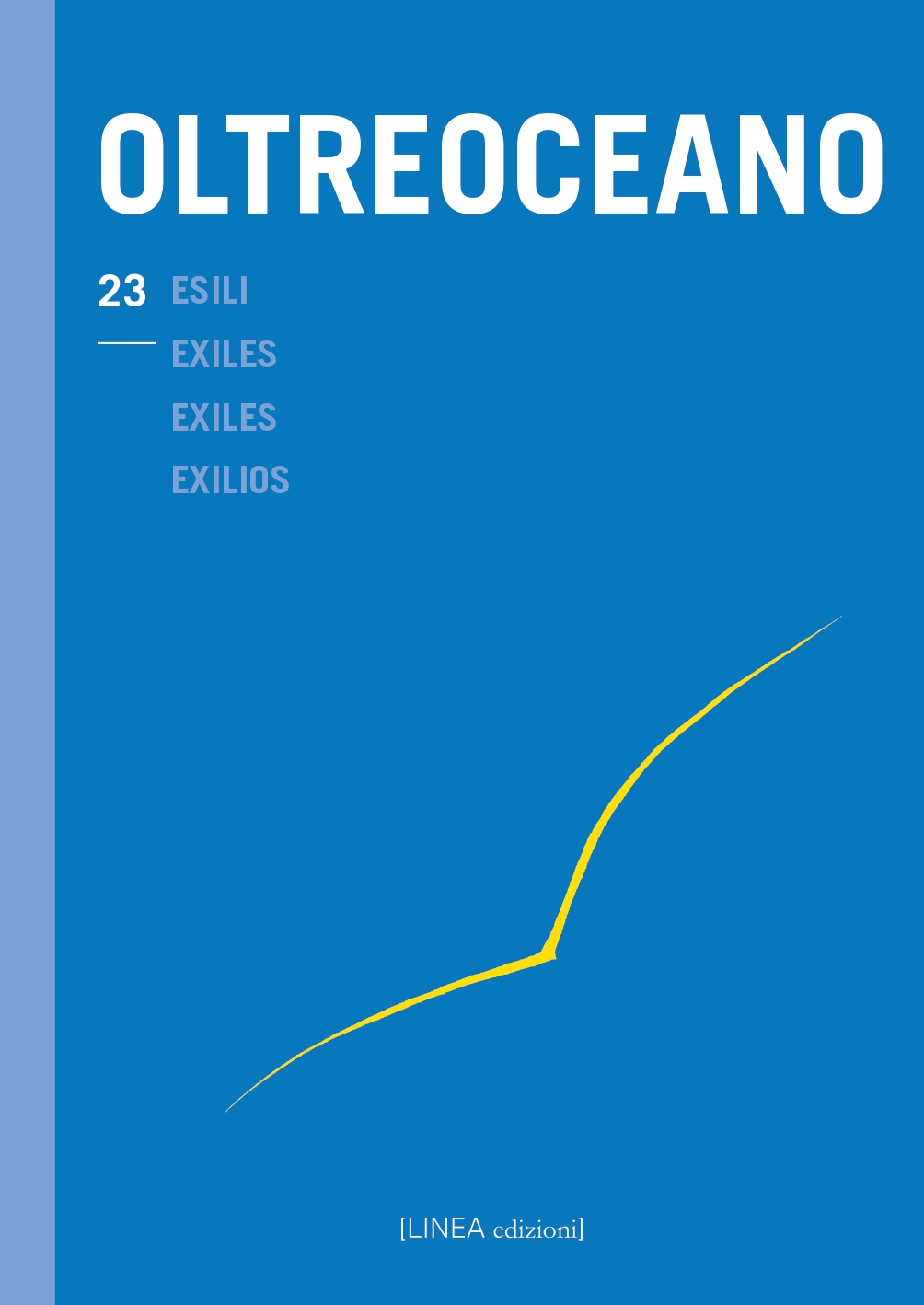El viejo soldado by Héctor Tizón. Otherness as a way of finding identity.
DOI:
https://doi.org/10.53154/Oltreoceano111Keywords:
Exile, Argentine military Dictatorship, Memory, Narrative identityAbstract
The Argentine writer Héctor Tizón (1929-2012) wrote the novel El viejo soldado in 1981, during his exile in Madrid. It is a text with strong autobiographical overtones, which remained unpublished until 2002 at the author's own wish. The novel, as Ana Príncipi maintains, raises the problem of the preservation of a subjectivity in a situation of exile. Raúl is a young Argentine who, after the military coup in his country, goes into exile in Spain. To survive and support his family, he works as a writer in the pay of an old Francoist determined to publish his memoirs. To the experience of exile, already traumatic, Raúl will have to add the humiliation of lending his pen to someone who represents the same values that have led him to that situation. But it is, above all, his coexistence with his antagonist that causes deep fissures in the story that he has constructed of his own life. According to Paul Ricoeur (2006), man, to understand himself, must narrate his own story. Only this account of oneself grants identity to the subject. Now, this «narrative identity» (Ricoeur 997) is a dynamic process in which, from the present, the subject chooses the events, experiences and interactions with others that nourish and give meaning to the plot of his story and that help him to understand himself and be understood. It is an eternal process of resignification of one's own self over time.
From his present in exile and the confrontation with the old soldier, for Raúl his present and past life acquires another reading. This resignification of his own identity will lead him to an extreme decision: that of murdering the old man because his existence reminds him of his failure, but, above all, to end at the part of “the other” that he discovered in himself.
Downloads
References
Abdala, Verónica (2002): La sociedad argentina, nosotros, tenemos la culpa de lo que pasa. Recuperado de Página/12 :: Espectáculos :: “La sociedad argentina, nosotros, tenemos la culpa de lo que pasa” (pagina12.com.ar) (Visitado el 21/08/2023).
Descartes, R (2010): El discurso del método. Madrid: Biblioteca Nueva.
Gilardi, P. (2011): La reconfiguración del tiempo en la narración historiográfica según Paul Ricoeur. Estudios de Historia Moderna y Contemporánea de México, 41, pp. 103-115.
Mancini, A. (2017): Héctor Tizón: la escritura y los avatares del exilio. Ars&Humanitas, 11, 2, pp.168-176.
Néspolo, J. (2017): Justicia poética. Entrevista a Tizón. Boca de sapo, XVIII, pp. 65-67.
Príncipi, A.S. (2002-2003): Derroteros de la escritura sobre La casa y el viento y El viejo soldado de Héctor Tizón. Orbis Tertius, 8-9. Recuperado de Derroteros de la escritura sobre La casa y el viento y El viejo soldado de Héctor Tizón | Orbis Tertius (unlp.edu.ar) (Visitado el 20/09/2023).
Ricoeur, P (1996): Tiempo y narración, III. El tiempo narrado. México: Siglo XXI.
Tizón, H. (1984): La casa y el viento. Buenos Aires: Alfaguara.
Tizón, H. (2002): El viejo soldado. Buenos Aires: Alfaguara.
Downloads
Published
How to Cite
Issue
Section
License

This work is licensed under a Creative Commons Attribution-NonCommercial-ShareAlike 4.0 International License.
The authors undertake to comply with the following conditions, which are considered accepted at the time of submission of their contributions.
The sending of a text implies that it is unpublished and not submitted to be published elsewhere.
1. If accepted, the author shall confer on the publisher the right to publish and distribute it both in paper form and in the online electronic edition. The published articles will be downloadable and made available in open access.
2. Provided that it correctly indicates that the first publication took place in the journal Oltreoceano. Rivista sulle migrazioni the author has the right to: a) reproduce the article in separate extracts or collected in a volume; b) publish the article on their personal website or teaching site provided that these sites are of a non-commercial nature; c) deposit the article in online archives of a non-commercial nature, linked to the institution they belong to or as part of projects for the non-commercial dissemination and open access of scientific works.
The use of contributions by third parties, for commercial or otherwise unauthorized purposes, is not allowed. The publisher declines all responsibility for the unauthorized use of the material published in the journal.












